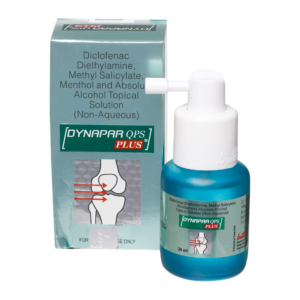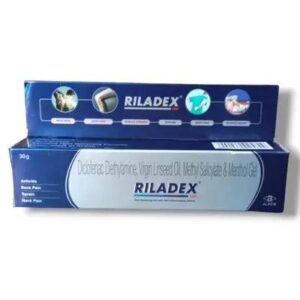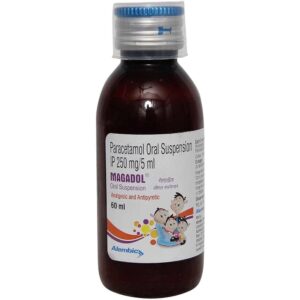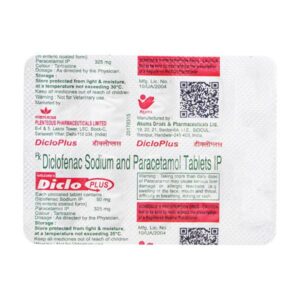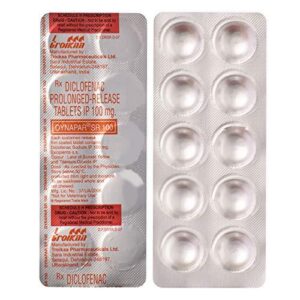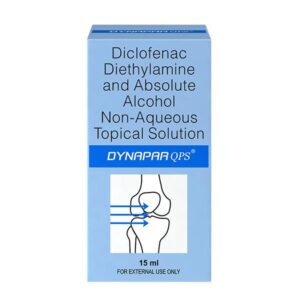PARACETAMOL (ACETAMENOPHEN) + DICLOFENAC
Paracetamol (acetamenophen): Paracetamol, also known as acetaminophen, is a commonly used over-the-counter medication for relieving pain and reducing fever. It is available in various forms, including tablets, capsules, liquid suspensions, and suppositories.
Paracetamol works by inhibiting the production of prostaglandins in the brain. Prostaglandins are chemicals that are responsible for transmitting pain signals and triggering fever and inflammation. By reducing the production of prostaglandins, Paracetamol helps to alleviate pain and lower fever.
This drug is primarily used for the management of mild to moderate pain, such as headaches, toothaches, muscle aches, and backaches. It is also effective in reducing fever associated with flu, colds, and other infections.
The usual recommended dose of Paracetamol for adults is 500 to 1000mg every 4 to 6 hours, with a maximum daily dose of 4000mg. For children, the dosage is based on their weight, typically ranging from 10 to 15mg per kg of body weight, given every 4 to 6 hours. It is important to follow the recommended dosage instructions and not exceed the maximum daily limit to avoid the risk of liver damage.
While Paracetamol is generally considered safe when used as directed, it can cause some side effects. Common side effects may include nausea, vomiting, constipation, or diarrhea. In rare cases, Paracetamol can cause a severe allergic reaction, indicated by symptoms like rash, itching, swelling, severe dizziness, or difficulty breathing. It can also cause liver damage if taken in excessive quantities or in combination with alcohol. Individuals with liver problems should consult a healthcare professional before using Paracetamol.
It is important to note that Paracetamol should not be taken with other medications that also contain Paracetamol, as this can lead to an overdose. It is always recommended to read the labels of other medications to ensure they do not contain Paracetamol before taking them alongside Paracetamol.
As with any medication, if you are unsure about its use or experience any unexpected side effects, it is advisable to consult a healthcare professional for guidance.
Diclofenac: Diclofenac is a nonsteroidal anti-inflammatory drug (NSAID) that is commonly used to relieve pain, reduce inflammation, and alleviate fever. It is available in various forms, including tablets, capsules, gels, creams, and injections.
The primary mechanism of action of diclofenac is the inhibition of the enzyme cyclooxygenase (COX), which results in the reduction of prostaglandin synthesis. Prostaglandins play a crucial role in the mediation of pain, inflammation, and fever. By blocking their production, diclofenac provides pain relief and reduces swelling and body temperature.
The dosage and administration of diclofenac depend on the form of the medication. For oral forms, such as tablets or capsules, the usual dosage range is 25-50 mg taken two to three times a day. However, the specific dose may vary depending on the individual’s condition and the severity of symptoms. It is recommended to take diclofenac with food or milk to minimize gastrointestinal side effects.
Diclofenac gel or cream should be applied topically to the affected area, usually 2-4 times a day. It is important to follow the instructions provided by the healthcare professional or indicated on the packaging.
The most common side effect of diclofenac is gastrointestinal discomfort, including abdominal pain, indigestion, nausea, and diarrhea. Long-term use or high doses of diclofenac may increase the risk of gastrointestinal ulcers and bleeding. Other potential side effects include headache, dizziness, drowsiness, fluid retention, and allergic reactions. In rare cases, diclofenac may cause serious cardiovascular events such as heart attack or stroke, especially in individuals with existing cardiovascular conditions.
It is important to consult a healthcare professional before taking diclofenac, especially if you have a history of gastrointestinal complications, cardiovascular disease, liver or kidney problems, or if you are pregnant or breastfeeding. Additionally, it is crucial to inform your healthcare provider about all other medications and supplements you are taking, as diclofenac may interact with certain drugs, including blood thinners and other NSAIDs.
Overall, diclofenac is an effective NSAID used for pain relief, inflammation reduction, and fever reduction. However, it should be used with caution and under medical supervision, considering the potential side effects and drug interactions.


